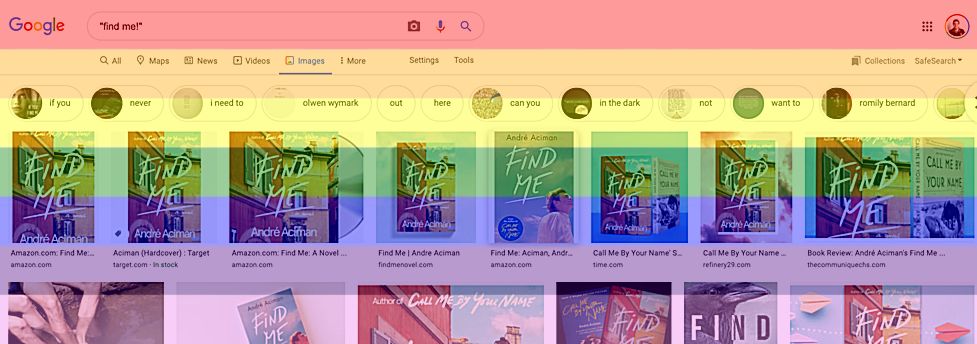What does Google Do?
You enter a word, series of words, or a near word, or a series of near words, or series of words mixed with near words, numbers, characters and emojis - and then - Google spits out the ten links on the internet that are most relevant.

Getting to a quality shortlist is winning the curation moment. The curation moment in today's internet is 3-20ish items - displaying in various designs. Some are heavier on headlines, others on imagary, others on meta data. Google search maps intent to page characteristics, like H1, H2, body, and internet location on down. Facebook orders the list through a newsfeed determined by machines analyzing our friendships as nodes. Netflix learns what you watch and orders giant boxes where 99% of the screen is clickable. So much market value has been captured by becoming the tech company that presents the items in the list.

I caught up with Alexis Ohanian over email, when doing some exploratory work on the the technical reasons why modern Amercia is incapable of achieving two thirds voter turnout in two party system, and while it didn't quite fit for that story (why the downvote is democratic), it got me thinking about this story. What should we value in the context surrounding a curated list of internet items?
"The first draft of Reddit voting only had 'interesting' and 'boring' under every link and I started thinking of ways to represent it better using icons, eventually settling on and drawing the up and down votes," wrote Ohanian. "The front page was designed to be a rising and falling list of links from the start, so that good content would stick around for longer (at the time this was actually novel) and we even hoped those votes would one day train a recommendation engine, showing you more of the content you'll like. Check out the old wayback machine screenshots!"
Here's what Reddit looked like on July 25th 2005, the first screenshot in the Wayback machine did not come until after the site had switched away from interesting/boring and to upvote/downvote. When the site started, it didn't even index. That's a nice reminder for anyone making a new site today, you could become a top ten site one day.

These headlines have aged with varying degrees of accuracy (turns out Lance Armstrong didn't win any Tour de Frances) but there's always going to be interest in the rubrik cube solver, making a million dollars on the internet, the home distillation of alcohol, and the breaking news that surrounds unexpected death. When you think about empowering community to determine an aggregate list, the ability to demote the bad could be as important as the ability to promote the good. Without an ability to demote the bad, all large communities will have bad actors rise to the top at some point, threatening the long term trust and integrity of the entire destination. Even the great NY business executive Ryan Howard had sexual predators infiltrate the cutting edge website of the public company Dunder Mifflin Infinity.
At Hacker Noon one of the questions I get asked the most is, how do I get on the homepage? So far, the answer has been human editors tagging the best as #hackernoon-top-story and choosing what trending tags display groups of latest stories below it. The homepage is gasoline. It's a prominent way to get more readership for the day's best stories, and a trigger for other distribution mechanisms. We've done a reasonable good job making the top of the homepage a place to be. And we listen to our readers, but we haven't let readers directly curate our homepage. Whether it's the wisdom of the crowd or the nature of consensus, there is value if knowing how, where and when the consensus differs from crowd's thoughts. Dane, our CPO, is currently working on an emoji reactions feed from verified readers to show up on a destination page and a homepage section. Here's a design preview (accompanying GIF, and the Codepen itself):
A lot of directions this could go... When it comes to context, an emoji can convene more variety than a binary system while requiring a similar level of friction for the reader to give feedback. So we'll go further with how it can drive curation.
Anyways, list making...

It's content results are as the internet as the internet functions. Fame is one, Mr. Branson. A rich snippet nevertheless. An "-ist" URL with censored "shit" is two. "Life changing" is three, and don't forget "psychology" at four. I think sensationalism will devalue in time. How many times can the world end but once? The internet created an abundance of options and limited contextual filtering. While the business models, user acquisition methods, and designs of list making destinations will evolve over time, the need to get to a quality shortlist will never die.

